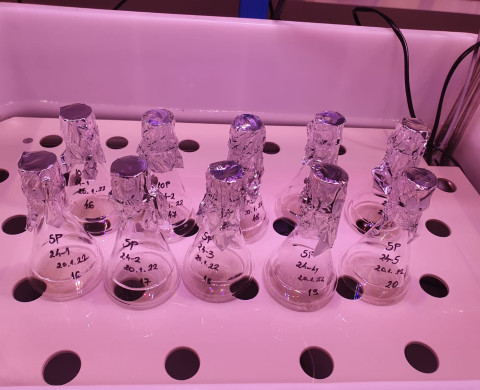Adaptive responses of phytoplankton to climate change

Details
- Department
- Aquatic Ecology
- Research group
- Van de Waal Group: Phytoplankton Ecology
- Funding
- NWO
Biodiversity loss
Biodiversity loss emphasizes the increased species extinction risk for a broad variety of organisms under global change (e.g. warming, eutrophication) during the 21st century and beyond. The adaptive capacity of organisms defines their ecological success, and greatly contributes to biodiversity. Understanding the potential for adaptive responses in key species is necessary to predict and, where possible, mitigate extinction risks. Recent research has focused on how different species respond to short-term changes under specific environmental changes, such as shifts in temperature and nutrients.
Integrating paleoecology and experimental evolution
In this project we integrate evolutionary palaeoecology and experimental evolution, to study how ongoing global change, particularly, warming and eutrophication, drive phenotype diversity and evolution over the longer term. The project focuses on the oldest and most species rich European Lake Ohrid. We study the link between changes in the environment and the eco-evolutionary patterns of diatoms (single-celled siliceous algae), using a ~1.4 million year old fossil record preserved in the lake sediment.
Diatoms
Due to their small size, short life cycle, easy propagation, and continuous preservation in the fossil record of Lake Ohrid, diatoms represent excellent model-species for this study. The adaptive potential of diatoms is tested in response to warming and phosphorus loading. The results will provide a comprehensive view on the evolutionary potential of aquatic primary producers towards global change on the genetic, physiological and morphological levels of organisation.
This project makes a novel integration of paleo- and experimental evolutionary scales to study the adaptive potential of species to combined global change stressors
Details
- Department
- Aquatic Ecology
- Research group
- Van de Waal Group: Phytoplankton Ecology
- Funding
- NWO
Experts
-

-
Aleksandra Cvetkoska
Postdoc , Aquatic Ecology

